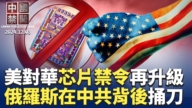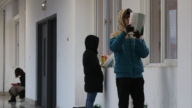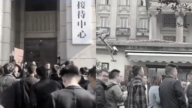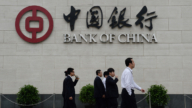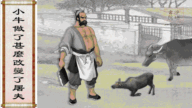【新唐人2011年12月14日訊】中國大陸社科院12號發佈了藍皮書指出,中國2011年已經進入了世界中上等收入國家的行列。專家指出,當前中國大陸經濟深陷困境,這個報告很可能是當局從輿論上為自己「貼金」、「救火」。下面請看本臺記者的報導。
在2012《產業藍皮書》發佈會上,大陸社科院對外發佈了《中國產業競爭力報告》。報告談到,每年7月份世界銀行都會對國家分類進行調整,按照2011年世界銀行的標準,中國已經成為中上等收入國家。
但這一說法,引起了各界人士和專家學者的普遍質疑。
美國「南卡羅萊納大學」艾肯商學院教授謝田對《新唐人》表示,當局發佈這個報告,很可能是為了在輿論上造勢。
謝田:「(當前)國際社會普遍認為,中國經濟面臨崩潰這個局面。它(中共)(發佈這個報告)是來為自己辯護、為自己貼金,來滅火、救火,跟這個有關係。」
「世界銀行」按照人均國民總收入(GNI),對各國經濟發展水平進行分組。 2010年的標準規定:人均國民總收入在3976至12275美元之間,為中等偏上收入國家。
中國的人均國民總收入和人均GDP大致相當。大陸國家統計局數據顯示,2010年中國GDP達到401,202億元,按照13.4億人口和1比7的匯率來計算,人均GDP為4277美元。
但值得注意的是,「人均國民總收入」和「人均收入」並不相同。「人均收入」只包括居民個人所得,而「人均國民總收入」則另外包括企業所得和政府所得。
謝田指出,大陸的GDP數據本身就不可信。中共在低效率、低回報基礎項目上的大量投入,造成大量浪費、重復建設,但這些都計入GDP總值。他強調,即使按官方數據,中國人均GDP已經進入中等偏上收入國家,但中國的「人均收入」卻遠遠低於其他中等偏上收入國家。
謝田:「這正好說明瞭,創造的財富沒有真正到了百姓的手中、普通民眾的手中,而是大量的集中在政府的手中、國有的大型企業手中。實際上,這也正好驗證了,我們一直觀察的、中國出現的貧富不均這樣一個現象。國富民窮、國進民退的現象,恰恰在這個報導的數據中體現了出來。」
「北京理工大學」經濟學教授胡星斗也指出,人均GDP、人均收入中存在大量水份與重復計算,這個報告太不靠譜,只是在為權力歌功頌德。
網友「市井小隱」則留言說:「能不能別再吹噓GDP,來點實際的吧!經濟越來越好,老百姓日子卻越來越苦,為甚麼啊?」
也有專家擔心,在進入中上等收入國家之後,經濟快速發展積纍的矛盾就會爆發,經濟會出現大幅波動或陷入停滯。「浙江大學」商學院「光彪講座」李志文教授則指出,對中國來說,所謂「中等收入陷阱」,實際上是個「政治陷阱」。
李志文:「中國,由於有個共產黨在這裡,那麼,這個政治問題,就是政治體制問題,就變成了發展的很大的一個坎。政治和經濟的脫軌,將來是很大的問題。就是說,這個政治跟不上,我們要開回頭車。」
社科院的這份藍皮書還提到,受出口萎縮等影響,2012年中國產業的國際競爭力將進一步減弱。
新唐人記者周玉林、李謙、蕭宇採訪報導
China—Upper-Middle Income Country?
The Chinese Communist Party (CCP)’s official Bluebook
newly released on 12 December,
says China has entered the ranks of the
world’s upper-income countries.
Experts say mainland China is currently in deep economic
trouble—the Bluebook report likely aims at gaining self-credit and smothering the potential fire of economic problems.
On the press conference for the 2012 Industry
Bluebook release,
the Chinese Academy of Social Sciences also issued
China』s Industrial Competitiveness Report.
The report states that every July, the World Bank reclassifies
countries by their income.
And according to the 2011 World Bank Report, China has
entered the ranks of upper-middle income countries.
However, such a claim aroused suspicion among
people of various sectors, experts and scholars.
Busines Professor at the University of South Carolina,
Frank Tian Xie,
believes the World Bank Report is part of a campaign aimed
at building positive public opinion for the CCP regime.
[Professor Frank Tian Xie]: “Currently, the popular view of
the international community is that China’s economy is edging towards collapse.
So the CCP regime released this report to defend itself,
claim self-credit, and extinguish the fire. That’s the reason.”
The World Bank groups countries by their economic development level,
based on Gross National Income (GNI) per capita.
In 2010, having GNI between U.S. $3,976 – $12,275 meant
ranking as an upper-middle income country.
China’s GNI per capita figure roughly equals to
its GDP per capita. The CCP’s official statistics show
China’s GDP in 2010 reaching over RMB 40 trillion and its
GDP per capita at U.S. $ 4,277–calculated on a population size of 1.34 billion,
and a 7:1 exchange rate of RMB against the US Dollar.
However, GNI per capita is not the same as per capita income.
Per capita income only includes citizens’ personal income, while
GNI per capita also covers corporate income and government revenue.
Frank Tian Xie points out that China’s official GDP figure is
not believable.
The CCP regime has invested heavily in low-efficiency
and low-return infrastructure projects,
resulting in huge amounts of waste and repeated construction.
But all wasted input was also calculated into China’s GDP value.
Professor Xie stresses,even if China has allegedly
entered the list of the world’s upper-middle-income countries,
based on CCP data, China’s per capita income figure is
far lower than that of other countries in this income bracket.
[Professor Frank Tian Xie]: “This precisely tells us that
the nationally generated wealth did not fall into the citizens’ hands,
but was mainly centralized at the authorities and
state-owned large enterprises.
Thus it also proves a phenomenon we’ve observed all along,
that is, of the wealthy government and poor civilians, or
the expansion of the state-owned sector
while the private sector shrinks.”
Professor of economics at the Beijing Institute of Technology,
Hu Xingdou,
says the GDP per capita value and per capita income
contains repeated calculations and lots of inflation.
Hu thinks the report is too tricky–just singing the praises
of the CCP for its power.
A netizen posted online: “Could you stop boasting GDP,
please? Put it into practice instead!
The economy is getting better and better,
while civilians are getting more and more bitter, why? “
Some experts worry that, along with being ranked as
an upper-middle income country,
conflicts accumulated from rapid economic development
will break out, triggering sharp volatility or even stagnation in China』s economy.
Professor at Zhejiang University, Li Zhiwen, comments that
the so-called middle-income trap, is in fact a political trap for China.
[Professor Li Zhiwen]: “The CCP reigns China, so it’s political
system becomes a great barrier for China’s development.
The unparalleled development of politics and economy will
evolve into a big issue in the future.
That is, if the political development cannot keep up,
we’ll face retrogression."
According to the Chinese Academy of Social Sciences Report,
the international competitiveness of China’s industries will be further weakened in 2012 as exports decline.
NTD reporters Zhou Yulin, Li Qian and Xiao Yu






